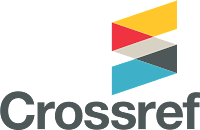About
Our community includes tens of thousands of organisations and systems in over 160 countries. Around 20,000 organisations are members so that they can create identifiers for metadata records that describe and locate their research. The records describe articles, book chapters, preprints, grants, and all kinds of digital or even physical objects relating to scholarly and professional research. Crossref members share the records through Crossref so that they don’t have to duplicate the information for the thousands who consume and use it downstream throughout the global research ecosystem.
The focus here is on the part of the Crossref infrastructure that facilitates the open and accessible retrieval of these metadata records, numbering over 160 million today.
Anyone can access to use these records without restriction, either through our search tool, search.crossref.org, or our REST API, api.crossref.org. There are no fees to use the metadata, but people who really rely on it may sign up for Metadata 'Plus', which offers greater predictability and higher rate limits.
People retrieving Crossref metadata need it for all sorts of reasons, including metaresearch (researchers studying research itself, such as through bibliometric analyses), publishing trends (such as finding works from an individual author or reviewer), or incorporation into specific databases (such as for discovery and search or in subject-specific repositories), and many more detailed use cases.
